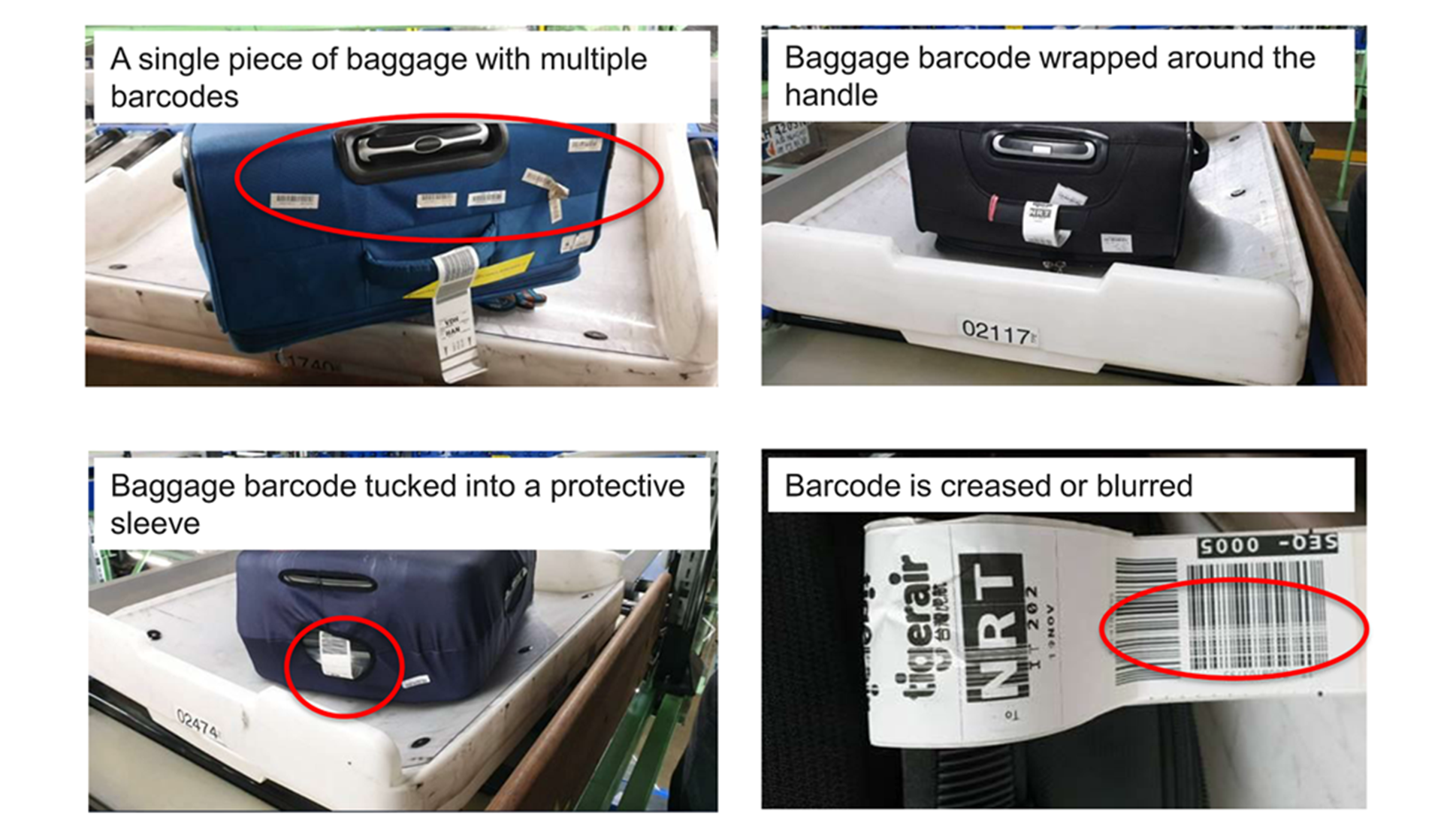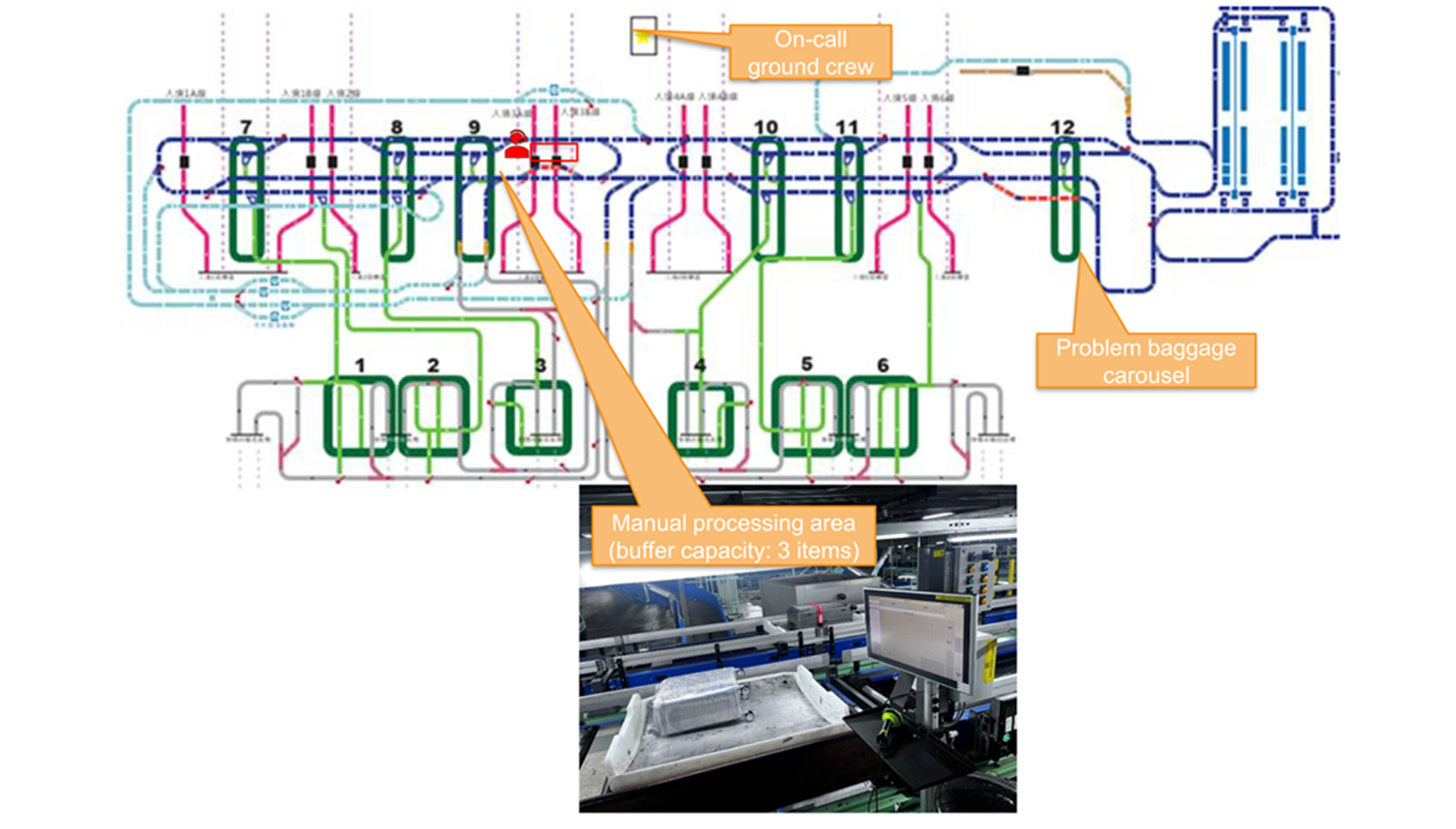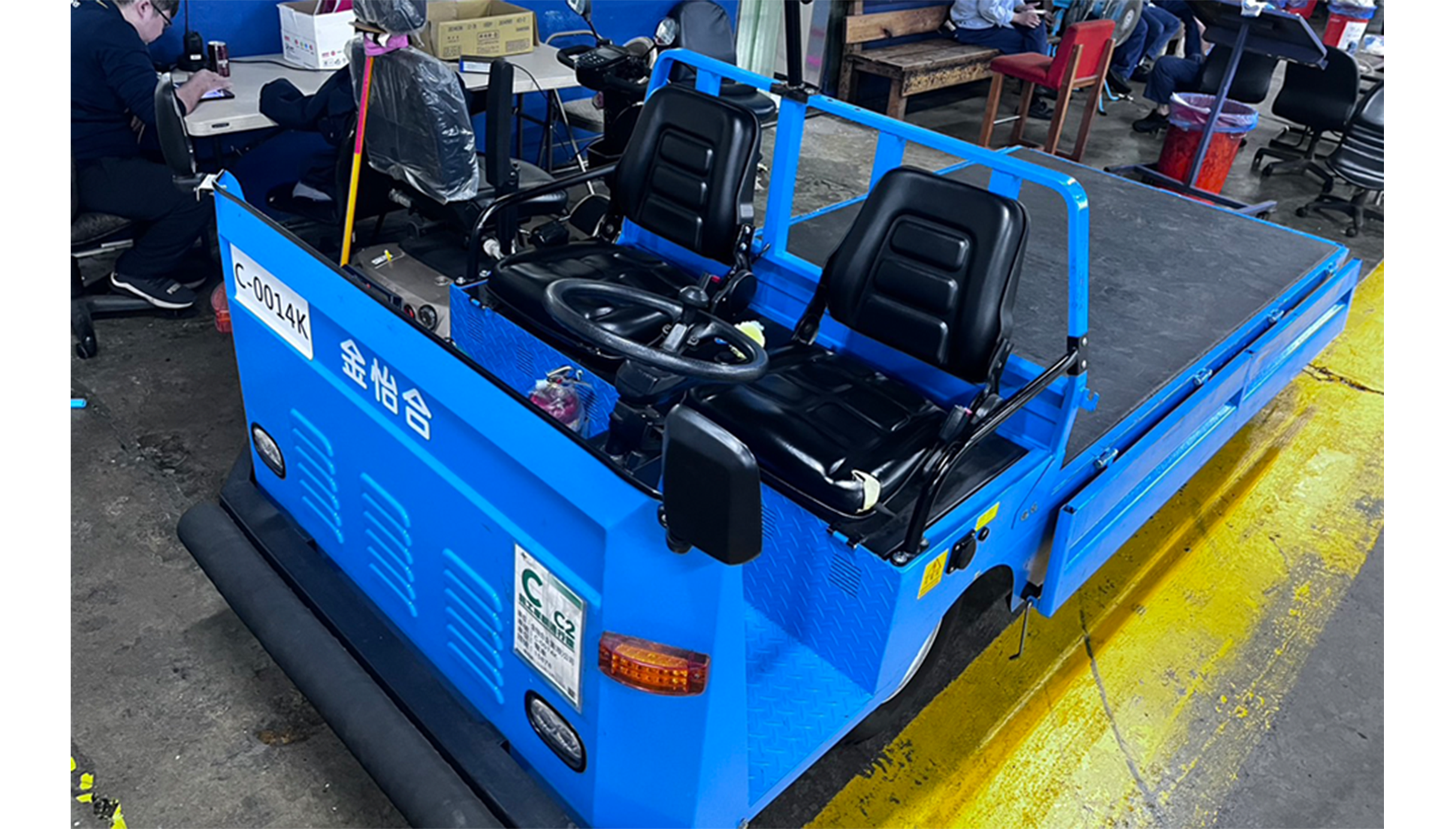Eco-friendly Innovation
綠色創新
Sustainable and Energy-Saving Circular Queue Strategy: Optimizing Baggage Sorting Efficiency
In recent years, with the continuous growth of air transportation, airport operational efficiency and sustainable development have become critical issues. As Taiwan’s primary air gateway, Taoyuan International Airport has long been committed to introducing innovative technologies and optimizing operational processes. While enhancing service quality, it also actively practices environmental sustainability. This article shares how CTCI Advanced Systems Inc. (CTCI ASI), a company under Group Intelligent Solutions Business, contributed to the airport’s sustainable development by modifying the control software of its baggage sorting system to reduce mishandled baggage and lower energy consumption.
The Challenge of Problematic Baggage: A Catalyst for Improvement
At Taoyuan Airport, baggage sorting systems occasionally encounter issues where baggage barcodes cannot be read by the scanners, preventing them from being correctly directed to the designated flight's baggage carousel. Common causes include: • Barcode damage or folding, making it unreadable. • Poor barcode placement, outside the scanner’s detection range. • System misreading, confusing baggage barcodes with other labels.

Illustration of problematic baggage: Damage, folding, or improper placement can all lead to misrouting.
When problematic baggage occurs, it is first sent to a manual handling area, where staff determine its destination and use a workstation to redirect it to the proper carousel. However, due to space limitations (buffer space for around 3 items), baggage overflow is redirected to the problematic baggage carousel. To ensure all bags reach their flights on time, on-call ground staff must manually collect and transport these bags using electric vehicles—a necessary but energy-intensive and labor-consuming workaround.
Circular Queue Strategy: A Smart Upgrade to the Sorting System
To address this issue, CTCI ASI proposed a software-based solution: modify the sorting system's control program. When the manual processing area is full, instead of sending the bag directly to the problematic baggage carousel, the system allows it to circle back into the sorting loop for another chance at processing. This improvement is based on the understanding that problematic baggage arises randomly. Giving baggage an additional loop increases the likelihood that the barcode will be read successfully or that space will become available in the manual area—thus reducing the chances of bags being sent to the problematic baggage carousel.

Flowchart of the baggage sorting system: Modified control logic allows baggage to loop around when the manual area is full, reducing reliance on the problematic baggage carousel.
Data-Driven Energy Savings and Carbon Reduction
According to statistics, in 2024, approximately 93,314 baggage items ended up at the problematic baggage carousel at Taoyuan Airport. With the new software strategy, this number is expected to decrease by 10%. Consequently, the number of manual transport trips required by on-call staff would drop from 18,663 to approximately 16,797 per year.

On-call staff with electric baggage vehicles, waiting for transport tasks.
Each transport trip using an electric vehicle consumes approximately 0.43 kWh of electricity. By reducing the number of trips, an estimated 803 kWh can be saved annually—equivalent to approximately 0.4 metric tons of CO₂ emissions. Beyond energy savings, the improved strategy contributes to multiple ESG benefits: • Environmental (E):Lower vehicle usage reduces electricity consumption and hence carbon emissions, helping mitigate climate change. • Social (S):Process optimization improves labor efficiency, allowing staff to focus on higher-value tasks. • Governance (G):Enhances airport operational efficiency and service quality, strengthening the organization’s image in corporate social responsibility.
Economic Perspective: Long-Term Investment Value
From a purely cost-saving perspective, the economic return of this upgrade may appear minimal. However, long-term benefits include: • Reduced maintenance costs:Fewer problematic bags mean less system strain and extended equipment life. • Higher passenger satisfaction:Fewer lost or delayed bags improve traveler experiences. • Enhanced corporate image:Demonstrates commitment to sustainability and strengthens brand value. For CTCI ASI, this improvement can also serve as a compelling case in future project bids, enhancing competitiveness and expanding collaboration opportunities.
Conclusion
Reducing problematic baggage not only boosts airport operational efficiency but also contributes meaningfully to environmental protection. While the short-term economic impact may be limited, the long-term environmental, social, and governance (ESG) benefits, along with Taoyuan Airport’s sustainability goals, are undeniable. CTCI ASI will continue embracing smart technologies, improving service quality, and supporting clients in achieving greener, smarter, and more sustainable operations—setting a new benchmark in the engineering industry.


